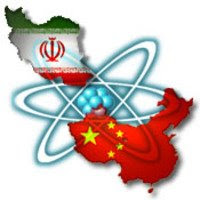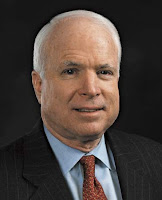Friday, April 10, 2009
China Confidential Forecast Confirmed: US Backing Down and Downplaying North Korean ICBM Test
How right we were--unfortunately.
The Wall Street Journal's Joe Lauria reports from the United Nations:The Security Council stalemate over North Korea's rocket launch is turning into an early test of the Obama administration's U.N.-focused multilateralism.
Continue here.
Six days after U.S. President Barack Obama called for swift punishment of North Korea, the Security Council hasn't acted.
While Japan is pressing for a quick response, U.S. Ambassador to the U.N. Susan Rice has tried to downplay expectations of immediate progress.China-Iran File: Communist Party Protecting Nuclear-Arming Iran and Accused Smuggler

China Confidential has learned that the Chinese company that is accused by the Manhattan District Attorney in New York of misusing banks to supply banned weapons to Iran is protected by officials of China's Communist Party at high levels. The DA on Thursday announced a 118-count indictment against LIMMT Economic and Trade Company Ltd., and Li Fang Wei, commercial manager at the Dalian, China-based company.
LIMMT was sanctioned in 2006 by the U.S. Department of the Treasury’s Office of Foreign Assets Control for providing material support for Iran’s missile program.
China strongly opposes the indictment.
In the meantime, Beijing is strengthening relations with Iran and indicating its support for the nuclear-arming, Islamist nation.
A special commentary asks: "Will Iran, U.S. Have Direct Talks?"
The section titled "IRAN'S RESPONSES MIXING STRENGTH WITH GRACE" reflects China's pro-Iran policy (in spite of Beijing's trading relations with Israel).
"Compared to that of the United States, Iran's stance indicates a mixture of strength and grace," the article asserts.
The China View essay continues:In the wake of the recent statements from the two countries, the international community has been watching closely to see whether official talk between the United States and Iran would take place and if it does, whether it could lead to substantial results.
From the two countries' declaration of positions to actually sitting at the negotiating table, there is still a long way to go, according to analysts. Especially for the United States, it is hard to tell whether the country can present the "sincerity" asked by Iran. Therefore, it is very likely for the two sides to have flip-flops on their positions on holding talks.
In fact, the long-standing confrontation between the two sides lies in that Iran insists that its nuclear program is only for peaceful purposes, while the United States holds that it will lead to nuclear weapons.
With such a lack of trust, it is hard to tell whether Iran will sit at the negotiating table with the United States.
On the other hand, the Obama administration's extending of carrots to Iran still smacks of being coupled with sticks.China Planning Major Media Manipulation Program

China Confidential has learned that China is planning a massive media manipulation and influencing campaign that will target overseas prestige press outlets in an attempt to exploit their financial difficulties.
The plan includes placement of full-page, paid advertisements and advertorials--sponsored editorial content--in leading American newspapers and magazines; commissioning custom publishing projects, such as special editions and one-shot magazines; and direct and indirect subsidies to encourage Chinese companies and overseas companies doing business with China to support friendly publications with advertising and subscriptions.
China Confidential, which is four years old today, is blocked in China. We do not expect to receive any offers of support from China in the foreseeable future. Nor would we accept any such offers.McCain: Start Nuke-Free World in Iran and N. Korea

The man who should have been elected President--U.S. Senator John McCain--told reporters in Tokyo today that he backs Barack Obama's call for a nuclear-free world, starting with North Korea and Iran. Click here for the report.
The Obama administration is riddled with people who believe disarmament should begin with the U.S. and Israel in line with the President's recent public apologies for alleged U.S. arrogance and remarks about the need for the U.S. to "lead by example."Obama Tested by 3 Hostage Crises

As of this writing, U.S. President Barack Obama is facing three simultaneous hostage crises--and showing weakness on all fronts.
Two American reporters are being held in North Korea.
An Iranian-American journalist is being held in Iran.
And an American merchant marine captain is being held--by Muslim pirates--off the coast of Somalia.
All this is being played out in the wake of the President's unprecedented bow to the King of Saudi Arabia--a deep, submissive bow from the waist, captured by video and still cameras but initially ignored by the mainstream media.
Not since the catastrophic Carter administration, which betrayed Iran's Shah, allowed Americans to be taken and held hostage in Tehran--and allowed an Iranian-controlled, ideologically-motivated, American hit man, an African-American convert to Islam, to escape the U.S. after gunning down a former Iranian diplomat in the doorway of his Bethesda, MD suburban home--has the U.S. appeared so helpless and vulnerable in the face of foreign aggression.
Not since the 1930s has the world seen such appeasement, experienced such economic and financial turmoil. Back then, the U.S. was led by Franklin Delano Roosevelt. Confined to a wheelchair, he beat the Axis and the Great Depression.
Is Barack Hussein Obama capable of defeating the Great Recession and the Axis of Nuclear Evil? Extremely doubtful. BHO is no FDR.China, Cuba Lead List of Net Suppressing Nations

Nearly 48 years after the failed, U.S.-backed Bay of Pigs invasion of Cuba, which took place on April 17-19, 1961, the island nation is still Communist and Castro-ruled. Cuba is also ranked "Not Free" in "Freedom on the Net," Freedom House's new assessment of internet and mobile phone freedom in 15 countries.
China ties with Cuba for the country with the most curbs on users' rights, including prosecutions for online activities, surveillance and extra-legal harassment of bloggers. But Cuba receives a lower score overall for having more obstacles to access and content limitations.
The study also identifies China as a leader in "outsourcing censorship," the practice of requiring private actors such as service providers and blog hosting companies to censor and monitor users. This trend is born out in the new regulations which require service providers to "improve their program content administration" by hiring "well-qualified service personnel to review and filter content." Chinese authorities and private providers already employ hundreds of thousands of people to monitor, censor, and manipulate online content.
Since 2007, the Chinese government has required all domestic video-sharing websites to be state-owned, except for several prominent pre-existing sites like Tudou.com, 56.com and Youku.com. These were instead closed in 2008 for several days to conduct a "self-inspection" and ensure adequate content controls were in place. Authorities also have been known to block international websites like YouTube and Facebook around sensitive events such as the Beijing Olympics, the protests in Tibet and the Communist Party Congress.
Along with China and Cuba, Iran and Tunisia were considered “not free” due to state control of internet activity. Seven countries--Egypt, India, Georgia, Kenya, Malaysia, Russia and Turkey--were considered “partly free”.
Four countries--Brazil, Britain, Estonia and South Africa--were labeled “free."
Freedom House is an independent nongovernmental organization that supports the expansion of freedom in the world. The group has been monitoring political rights and civil liberties in China since 1972.China Seeking Stronger Saudi Ties

China Confidential has learned that China and Saudi Arabia are regularly exchanging ideas about a number of foreign policy subjects, including the Iranian nuclear issue, the Middle East peace process, and the global economic crisis.
Wu Sike, Beijing's new special envoy to the region, is eager to strengthen China-Saudi ties. A former ambassador to Saudi Arabia, he replaces special envoy Sun Bigan.
Saudi Arabia is the largest supplier of oil to China. Angola was the top supplier until 2007.
Saudi Arabia sees China as the key to developing the kingdom's vast heavy oil reserves, which require increased refining capacity in Saudi Arabia or China.
Saturday, 11 April 2009
On March 25, April 5, and April 6, China Confidential said that the Obama administration was preparing to or already engaged in backing down to North Korea and downplaying the significance of its illegal ballistic missile test.
Posted by
Britannia Radio
at
10:47
![]()





















